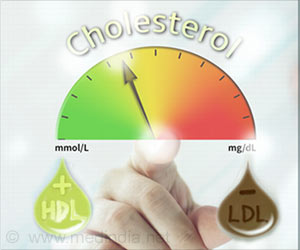Patients with severe coronary artery disease live longer if they receive coronary artery bypass surgery as their initial treatment instead of artery-opening angioplasty or heart medications…
Patients with severe coronary artery disease live longer if they receive coronary artery bypass surgery as their initial treatment instead of artery-opening angioplasty or heart medications, according to a Duke University Medical Center analysis.
Yet up to 40 percent of patients diagnosed with severe coronary disease are treated first with angioplasty or medications and not given the opportunity to receive bypass surgery, the researchers estimate. Bypass surgery is more expensive and more invasive, but has the benefit of increasing patient life span significantly more than the other options, the scientists said.Bypass surgery involves opening the chest and surgically bypassing blockages in coronary arteries with healthy arteries taken from other parts of the body, most often the legs. Angioplasty involves snaking an expandable balloon through a tube inserted through a blocked coronary artery and then expanding the balloon to push the blockage against the walls of the artery, thereby opening it.
"It may sound very appealing to patients with severe coronary artery disease to get a treatment that is less expensive or less invasive, but they may not be getting the same survival benefit as those patients receiving bypass surgery," said Peter Smith, M.D., chief of cardiothoracic surgery and lead investigator for the study.
"The 40-year history of bypass surgery has shown it to be a durable and reliable treatment for coronary artery disease," Smith said. "It may seem counterintuitive to start a patient on the most invasive treatment option, but our analysis showed that surgery provided significant improvement in longevity for patients with severe disease."
The findings appear in the October 2006 issue of the journal Annals of Thoracic Surgery. The study was supported by the Duke Clinical Research Institute and Duke's Division of Cardiothoracic Surgery.
The researchers retrospectively analyzed the outcomes of 18,481 patients who had at least one coronary artery that was more than 75 percent blocked and who had received bypass surgery, angioplasty or heart medications at Duke from 1986 to 2000. Patients were considered to have severe coronary artery disease if three of their coronary arteries were more than 75 percent blocked.
Stents are thin metal mesh tubes that are inserted at the site of a blockage after angioplasty to keep the artery open. For cardiologists, stents were a significant advance over angioplasty alone, cutting in half the rate of reblockage of the treated artery, Smith said. More than three-quarters of patients undergoing angioplasty now receive stents.
"We believe that our findings have a particular relevance to practice today, since recent studies are suggesting that there may be problems with the long-term durability of drug-eluting stents," Smith said. "Because of these new questions, many physicians are going back to the traditional stents."
The researchers found that patients in the 1996-2000 period with severe disease who received bypass surgery lived an average of 5.3 months longer than those treated by angioplasty, a statistically significant difference.
"These findings should change practice," Smith said. "We've clearly needed the long-term survival data, and this study provides it. Patients receiving bypass surgery get a durable fix for their disease. Patients undergoing angioplasty with a stent not only have a foreign object in their body, but they also must take drugs to keep clots from forming in the stent."
In other study results, the researchers found that both bypass surgery and angioplasty provided more benefit for patients than medicines alone. For patients with the most severe disease, the procedures added 23.6 months of life over the 15 years covered in the study. For medium severity disease (two blocked arteries), procedures added 10.6 months of life. For low severity disease (one blocked artery), procedures added 8.1 months of life.
Smith also pointed out that his group's study has the strength of having analyzed patients who are fairly representative of the general population of heart patients, and so the results showing long-term benefits of bypass surgery should be widely applicable.
By contrast, he said, cardiologists' widespread use of angioplasty and stents is based on the results of clinical trials in which patients are carefully screened before being allowed to participate. Although valuable, such clinical trials have not provided the type of long-term data on treatment efficacy in a real-world population of patients that exists for bypass surgery, he said.
"The idea that a therapy such as stents has found such wide application without long-term follow-up is concerning to me," Smith said.
Source-Eurekalert
SRM
 MEDINDIA
MEDINDIA
 Email
Email










